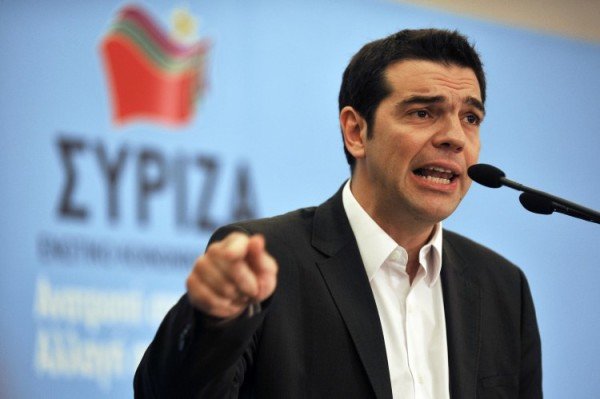Greek parliament has approved the 2016 budget that includes sharp spending cuts and some tax increases amid economic recession.
The austere budget was passed with a majority of only eight votes – 153 to 145.
“This budget is a difficult task for a government that wants to leave its mark with social justice,” PM Alexis Tsipras told lawmakers.
Alexis Tsipras agreed to a batch of economic reforms in August to secure a euro zone bailout of up to €86 billion ($93 billion).
His leftist-led government has been under pressure to deliver tangible benefits to its poorest citizens since the agreement.
Greece’s budget makes €5.7 billion in public spending cuts including €1.8 billion from pensions and €500 million from defense. It also includes tax increases of just over €2 billion.
Despite the cuts, the budget will still have a greater deficit than the 2015 budget.
Earlier this year the country reluctantly agreed to the strict conditions of its third international bailout in five years.
After losing his majority in August as a result, Alexis Tsipras called an election and was returned to power in September with 35% of the vote.
Representatives of the euro zone, the European Central Bank and the International Monetary Fund (IMF) return to Greece on December 7 for more talks about pending reforms of the pension and tax systems and public administration.
The euro zone has also held out to Greece the possibility of long-term debt relief after a review of progress under the new bailout.
However, it has said that relief would come in the form of longer delays before repayments start or finish, not a reduction – or so-called “haircut” – in the amount that has to be repaid.
According to Greek media, PM Alexis Tsipras is set to call a snap election for September 20.
Alexis Tsipras has faced a rebellion within his ruling hard-left Syriza party over a new bailout deal which has been agreed with international creditors.
Greece received the first €13 billion ($14.5 billion) tranche on August 20, allowing it to repay a debt to the European Central Bank (ECB) and avoid a messy default.
However, the austerity measures needed for the deal angered many in his party.
Alexis Tsipras had to agree to further painful state sector cuts, including far-reaching pension reforms, in exchange for the bailout – and keeping Greece in the eurozone.
The overall bailout package is worth about €86 billion over three years. The payment of the first tranche was made on August 20 after the bailout deal – Greece’s third in five years – was approved by relevant European parliaments.
Alexis Tsipras is to make a televised state address later on Thursday.
The prime ministere is set to submit his resignation to the president to clear the way for the elections, the media reports said.
Energy and Environment Minister Panos Skourletis said on state TV: “The certainty is that the need for elections has arisen.”
Reacting to the reports, Martin Selmayr, European Commission President Jean-Claude Juncker’s chief-of-staff, tweeted that “swift elections in Greece can be a way to broaden support” for the bailout deal.
Some 43 of Syriza’s 149 members of parliament had either opposed the bailout or abstained in last Friday’s Greek parliamentary vote that approved the deal.
The rebellion meant Alexis Tsipras, who was elected this January, had effectively lost his parliamentary majority.
Alexis Tsipras had won power on a manifesto of opposing the stringent austerity conditions that he has now accepted.
The prime minister said he was forced to do so because a majority of Greeks wanted to stay in the eurozone, and this could not be achieved in any other way.
Greece remains under strict capital controls, with weekly limits on cash withdrawals for Greek citizens.
According to the Greek constitution, if the government resigns within a year of election, the president will ask the second-largest party – in this case the conservative New Democracy – to try to form a new government.
If this fails, the next largest party must be given a chance.
However, analysts say both parties can waive this and allow the president to approve the snap election.


